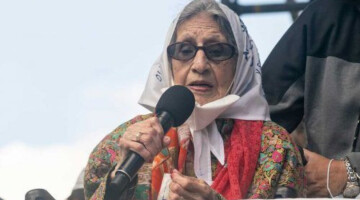In Turkey, racist attacks on Kurds by organized lynch mobs are on the rise. In recent days, seven agricultural workers have been injured in Afyon. Members of a Kurdish family who were brutally attacked in Ankara are still in danger of being killed. In Konya, Hakim Dal was killed in the attack on his family. Forty of the approximately sixty people involved were temporarily detained and all but one has since been released as Turkish authorities deny a racial connection.
The co-chair of the Human Rights Association (IHD), lawyer Eren Keskin, assesses the lynching campaigns as political attacks. The IHD Commission against Racism and Discrimination is looking into the cases. Keskin confirms that the attacks on Kurds have intensified recently: "We know very well that violence is political, both violence against women and in general. Due to the extremely harsh, exclusionary and racist language of the state, attacks have increased. The racist aspect of these attacks goes unpunished in this country."
Lynching treated as personal conflict
According to Keskin, the impunity results from the fact that the judiciary ignores and thus covers up the racist background of the attacks. The lynch mobs are treated by law enforcement as assaults due to personal conflicts. The human rights lawyer sees the murder of Deniz Poyraz and the acts of violence in recent days as a reflection of the aggressive language used by the ruling coalition of AKP and MHP.
As Eren Keskin informs, the IHD persistently pursues such cases: "We make contact with those affected, but people are intimidated. Our colleagues have spoken to those affected in Konya, Afyon and Ankara. All of them have testified that they have been attacked because they are Kurds. According to the lawyer representing the family in Konya, the prosecution is ignoring the fact that this is a racist attack."
Racism is not a crime in Turkey
Keskin points out that racism does not appear in the Turkish Penal Code. Article 122 only criminalizes discrimination, but even this paragraph does not apply in the recent cases of violence. There are also many examples of this in the past. Last May, for example, twenty-year-old Barış Çakan was stabbed to death for listening to Kurdish music. The perpetrators were charged with premeditated murder, but both the prosecution and senior state officials rejected a racist connection. Investigations for incitement to hatred and misleading were launched against people who named this background on social networks.
A similar investigation was conducted into an attack on Kurdish seasonal workers in Sakarya in September 2020. In December 2018, 43-year-old Kadir Sakçı was shot dead in Sakarya for speaking Kurdish with his son on the street. The perpetrator was sentenced to life imprisonment for murder, and the racist aspect was not considered in the trial.















